Community
Peachtree Corners Sports Bar Celebrates 10 Years of Community Commitment
Published
2 years agoon
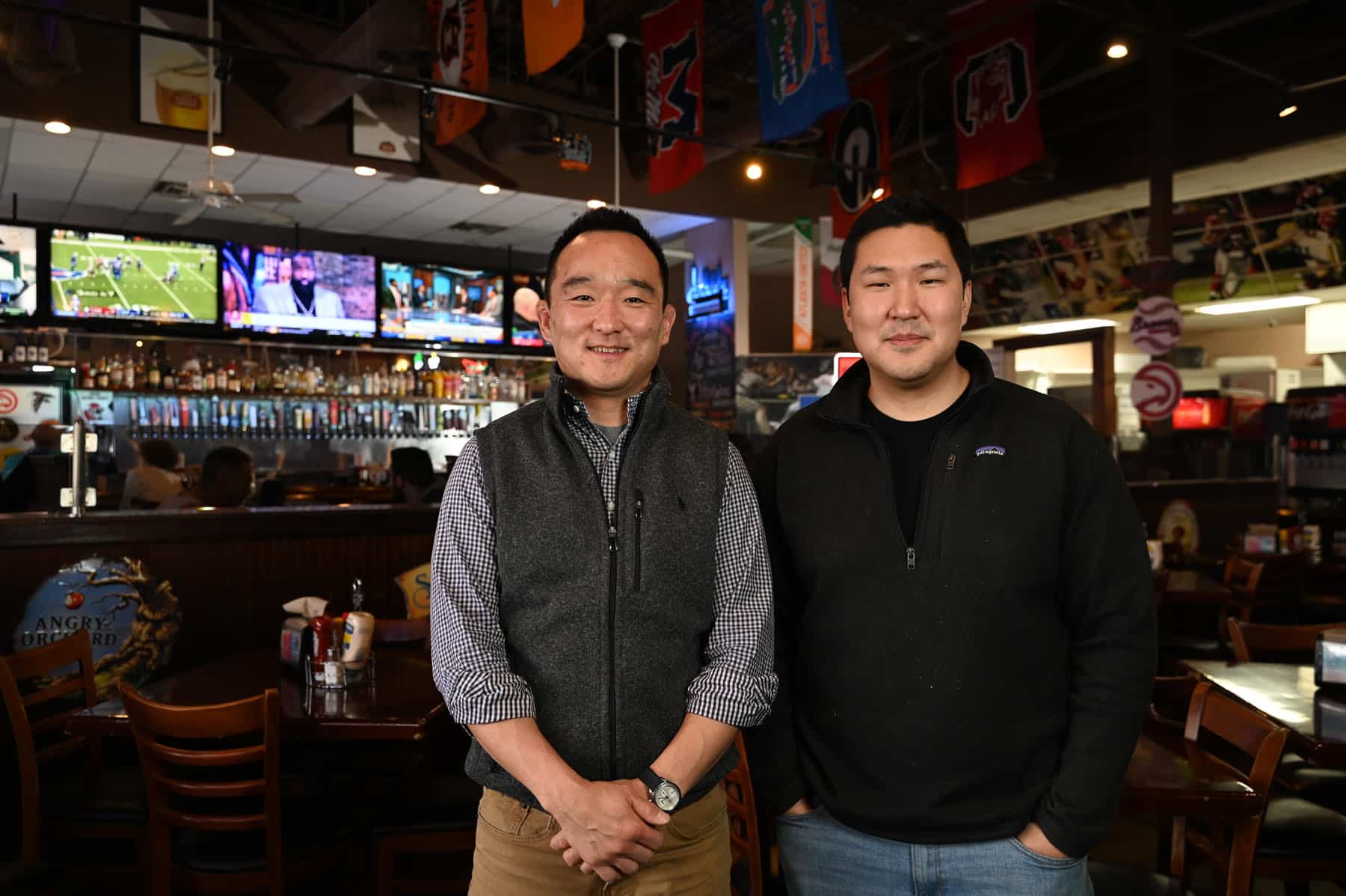
Three Dollar Café’s quality, service, and dedication have kept it a staple throughout metro Atlanta for 40 years and locally for a decade.
Don’t come to Three Dollar Café expecting cheap food. The name doesn’t reflect the prices or the quality, but the desire of an immigrant to find his piece of the American dream.
Joe Woo, a co-owner of the Peachtree Corners location, is the son of the original Mr. Woo who came to America in 1979 with three dollars in his pocket. (See what he did there?) By 1983, Mr. Woo opened his first restaurant in Sandy Springs. To pay homage to his struggles and commitment to keep the business going, he named it Three Dollar Café.
Although the Peachtree Corners location isn’t the original, it has the same family-oriented spirit and commitment to fresh, well-made pub grub as the first restaurant founded 40 years ago.
There are currently nine locations with a tenth one set for Buford in the near future.





Café grows with the city
When the restaurant on Peachtree Corners came online in February 2013, Peachtree Corners had just become a city. The strip mall location was being re-imaged from a Kroger grocery store and some nearby landmarks, such as Dick’s Sporting Goods.
Since then, Three Dollar Café has grown with the city and served many metro Atlanta favorites, like its famous, award-winning wings and a variety of burgers, sandwiches, wraps, and appetizers — all made fresh.
“It was cool that someone purchased this property and had the vision to make it what it is now,” said Joe Woo. “They realized that there was a lot of traffic on 141 and that if people had a place to stop, it could be a good fit.”
As the city grew, the location grew, and so did the relationships with families in the area.
“We’ve just always been here. And as part of the community, we participated in community events like the Peachtree Corners Festival,” Woo said.
Quality and consistency earn high ratings
Although a decade may not seem long, it is in the restaurant industry. One of Three Dollar Café’s testaments to longevity is its quality and consistency. When others were scrambling to keep the doors open during the pandemic, Woo said he and his staff stayed focused on good food and good service.
“I think the neighborhood appreciates that we kept things consistent. Our goal is to provide really good, high-quality food with good service by getting food out really quick,” he said. “I think how we fared during the pandemic is indicative of the quality of service that we provide, but it’s also indicative of the quality of food we provide.”
Woo pointed out that followers of the digital media brand Eater Atlanta have rated Three Dollar Café’s chicken wings best in the metro. He added that the restaurant also gets consistently high marks from food blogs and media outlets.
He added that, at the end of the day, Three Dollar Café is just a casual place where people can sit down, whether for a lunch meeting, dinner with a family, or later in the evening to catch a game and have a drink at the bar.
Using successes to move forward
Although he just recently came on board, Woo’s partner Jeff Jang agreed wholeheartedly. The décor reflects hometown sports favorites, whether they’re pros, colleges, or local high schools.
“We see a lot of kids come in with their families in their baseball or soccer uniforms and it’s nice that we may see them in a few years bringing their own kids in with similar uniforms on,” said Jang.
Woo is turning more of the day-to-day operation to Jang, who has renewed vision for the establishment. “During the pandemic, we did a lot more takeout, and we’re looking to maintain that,” said Jang.
“We’re also looking into more catering. There are so many businesses and office parks nearby, our menu can easily accommodate more catering,” he added.
Three Dollar Café Peachtree Corners
6050 Peachtree Pkwy., Peachtree Corners
770-441-8520, facebook.com/ThreeDollarCafe141
Photos by George Hunter
Related
Arlinda Smith Broady is part of the Boomerang Generation of Blacks that moved back to the South after their ancestors moved North. With approximately three decades of journalism experience (she doesn't look it), she's worked in tiny, minority-based newsrooms to major metropolitans. At every endeavor she brings professionalism, passion, pluck, and the desire to spread the news to the people.


Atlanta welcomed over 60,000 fans of cosplay, comics, gaming, anime and music over Memorial Day weekend — all meeting up at the Georgia World Congress Center to celebrate MomoCon 2025 and its 20th year in the city.
One of the fastest growing, all-ages conventions in the country, this year’s numbers topped the 56,000 guests that attended in 2024, and was estimated to have a $42.2 million impact on the metro area.
Equally important, the buzzing enthusiasm and pure joy of the weekend — from both attendees and featured guests — was unmatched. Everyone seemed to be having an incredible time.

Fan-favorite comic book artists
Comic book artists (and original members of the former Atlanta-based Gaijin Studios), Cully Hamner and Brian Stelfreeze made their first appearances at MomoCon this year, invited to attend and show off their work in the Artist Alley. Fans lined up to meet them, along with fellow award-winning artist and longtime friend, Wade von Grawbadger, to get photos, autographs and artwork and spend a few minutes chatting with the guys.
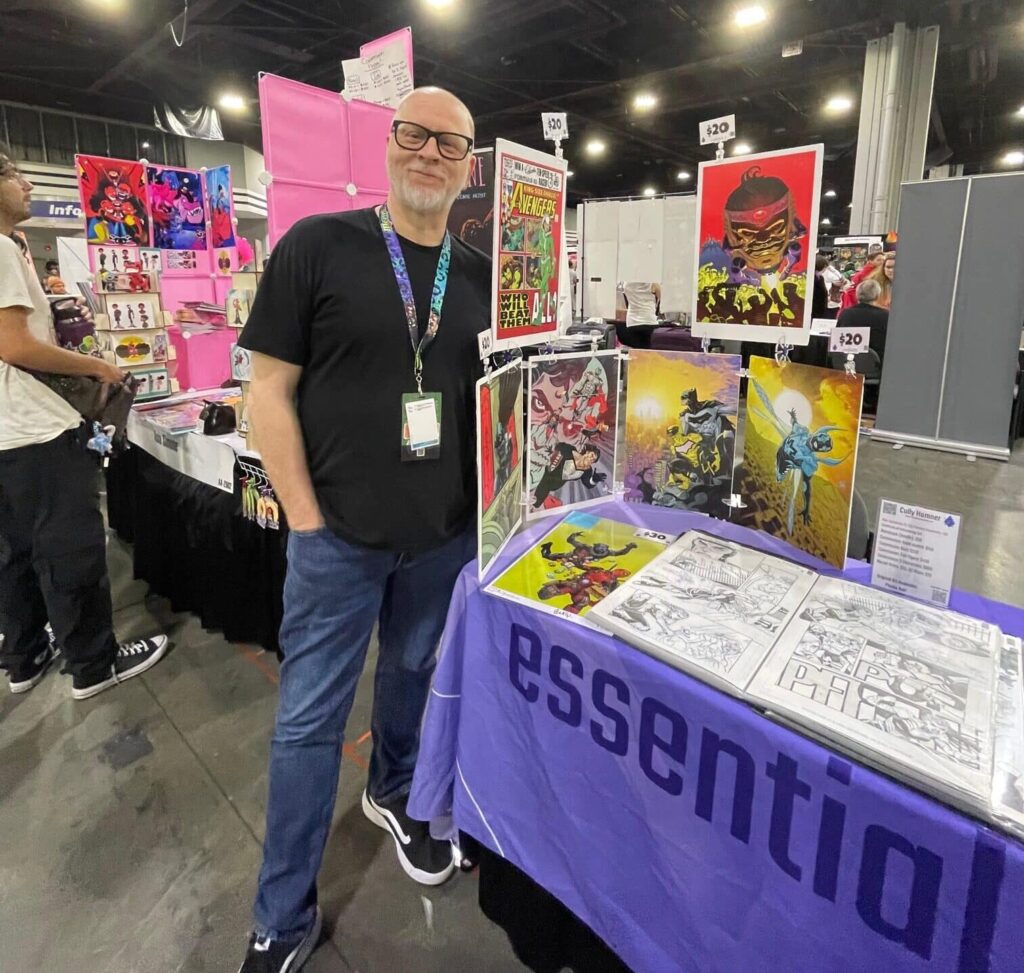
Hamner talked briefly about an upcoming project, “Ruby Actual” that he’s doing with Greg Rucka. “Not sure when it will come out,” he said, “But we’re hoping first quarter 2026.”
In the meantime, comic fans can continue to enjoy his previous work — the acclaimed, creator-owned RED (which was adapted into two films), the current Blue Beetle (also adapted to film) and all of the other work he’s done for DC, Marvel and other publishers over the last 30 years. They can also look forward to his return to MomoCon in the future if schedules work out.
“This has been a lot of fun,” Hamner said on Sunday, the last day of the convention. “I’d love to come back if they invite me again.”
Stelfreeze agreed. “I enjoyed [MomoCon],” he said. “I really liked seeing the younger audience.”


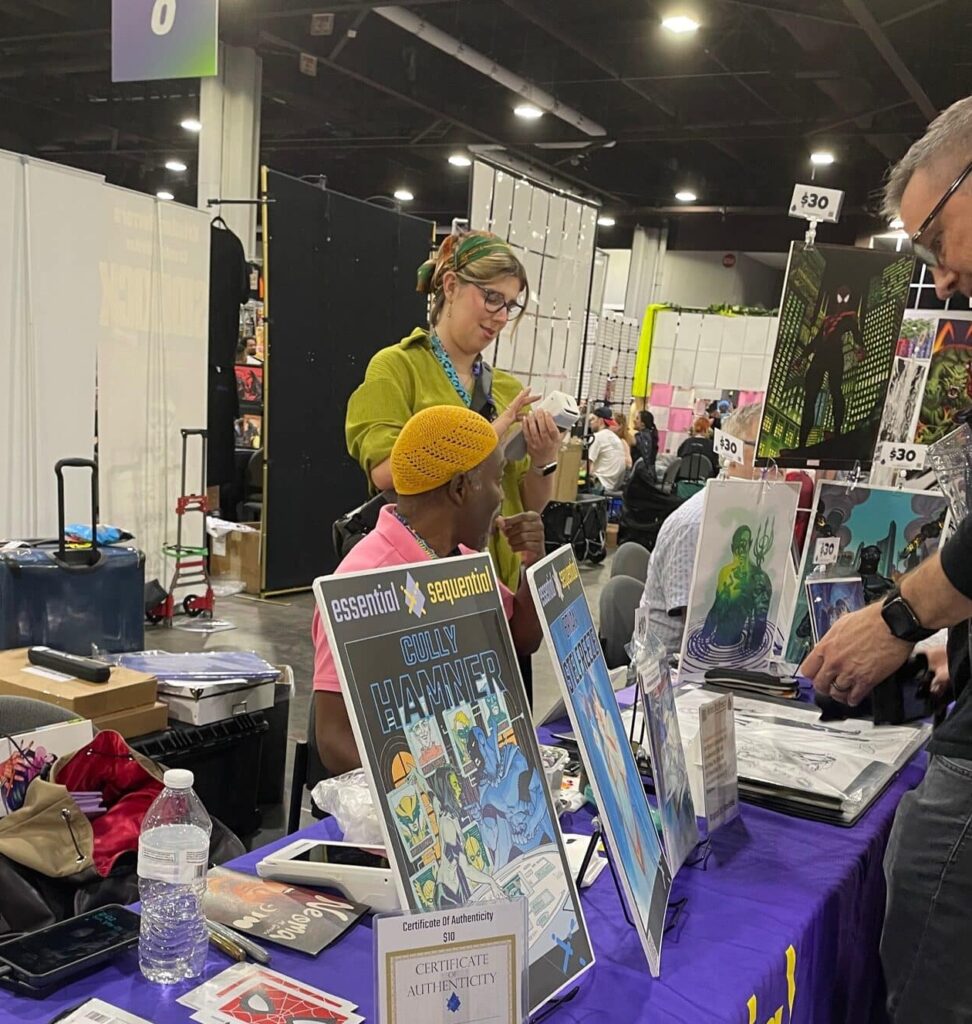

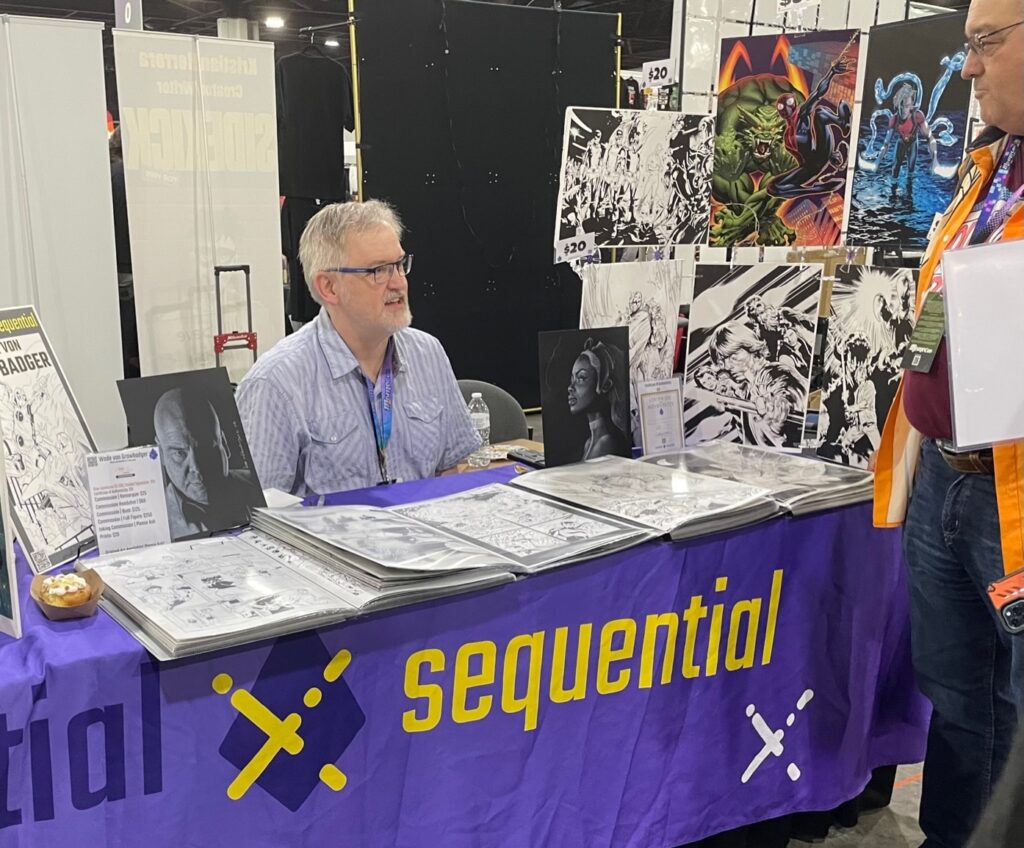
That definitely seemed true on Sunday, as the crowds had thinned out some and Stelfreeze had more time to hang out and talk with people who stopped by the Essential Sequential booth. With some fans, he spent ten minutes or more discussing art, comics and other topics, and even came out from behind the table at times to meet people and say hi to old friends.
Featured guests
Other featured guests also drew long lines of fans who were eager to meet their favorite creators.
Darryl McDaniels (from RunDMC and now a comic book and children’s book author), Greg Burnham (Norcross-based comic book writer known for his indie comic hits), Reed Shannon and Mick Wingert (voice actors and stars of Netflix’s “Arcane”), Ryō Horikawa (Japanese voice of Vegeta in “Dragon Ball Z”), veteran voice actor and producer, Chris Sabat, and online personalities such as Damien Haas were just a few of the standouts.
In fact, as the convention was winding down on Sunday afternoon, Haas’ fan line was still so long, the crowd filled multiple rows of the cordoned-off autograph area, both inside and outside of his designated line.

A full list of 2025 celebrity guests can be found here.
New for 2025
While most of the fun features of MomoCon 2025 were returning favorites — Artist Alley, Exhibitor’s Hall, panels, movie screenings and the cosplay showcase —convention organizers kept things fresh with a new theme (‘90s Retro) and a few new highlights, including a skating rink, an expanded online gaming area and the return of the “Bring Your Own Computer” section.
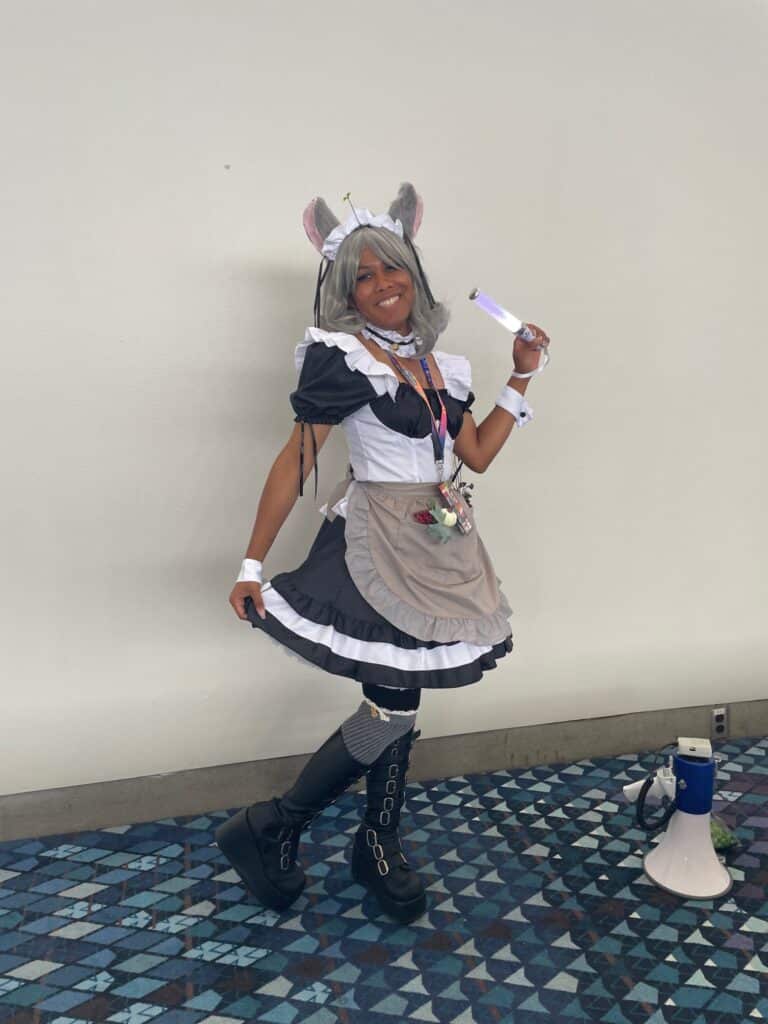
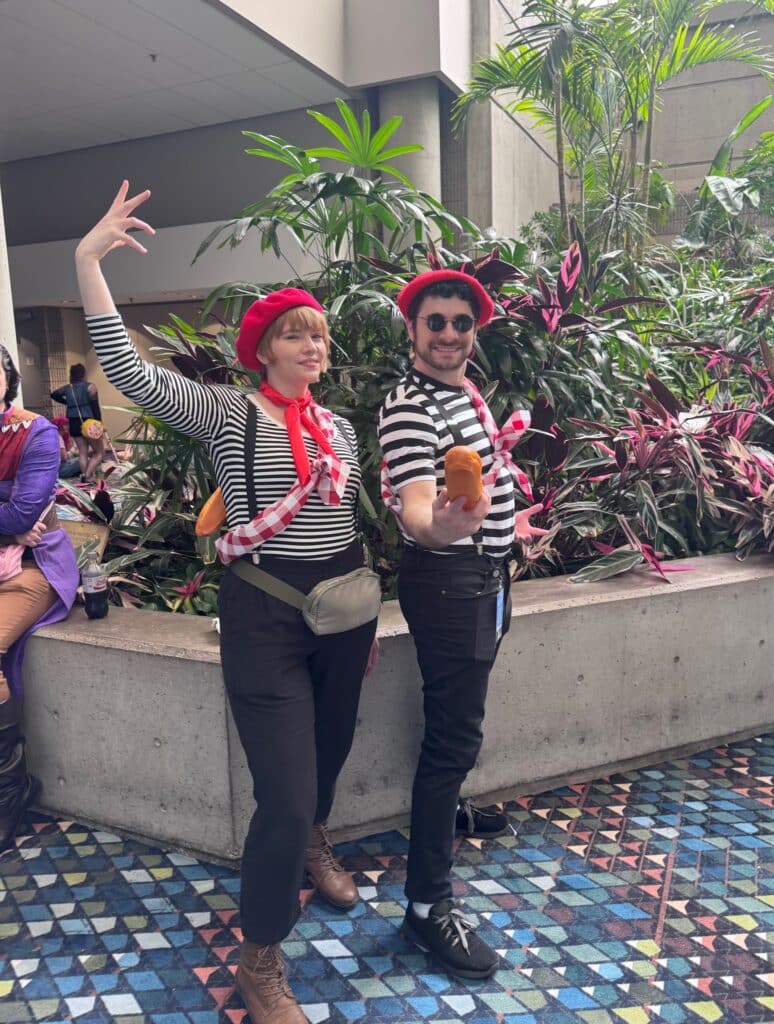
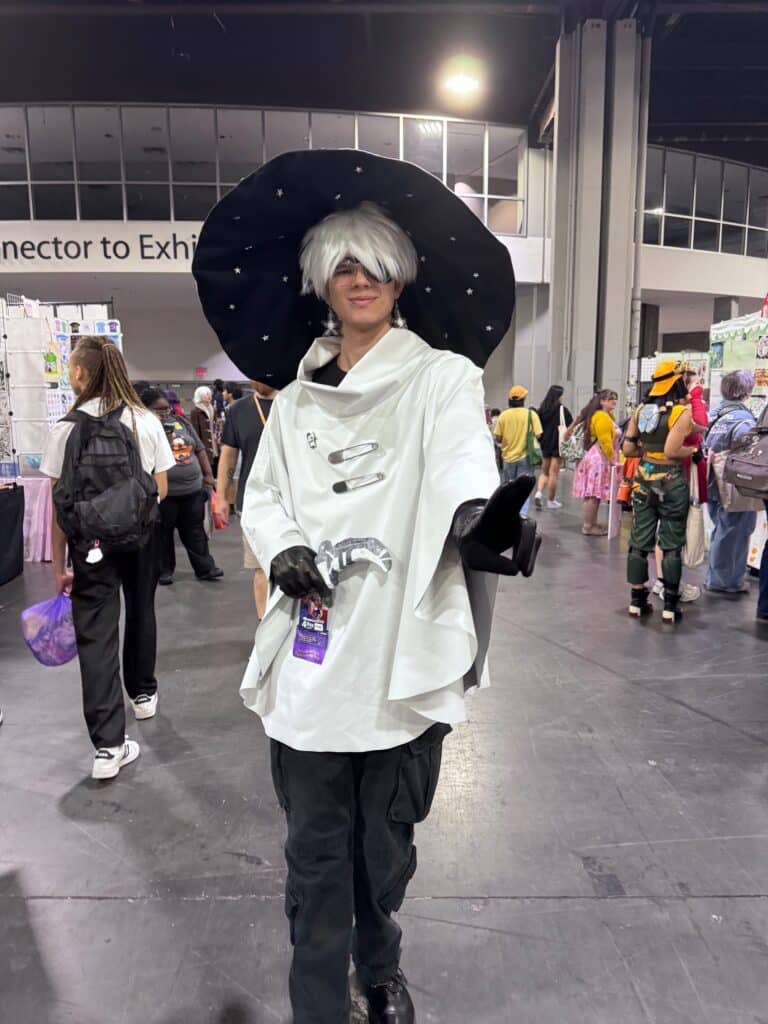
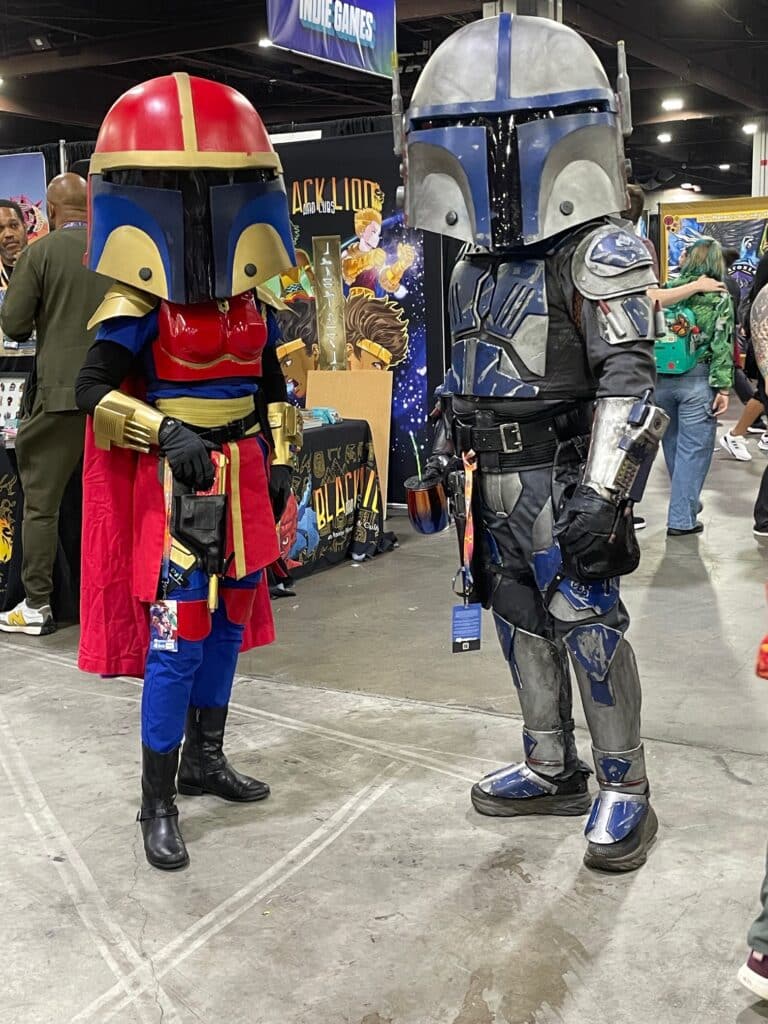

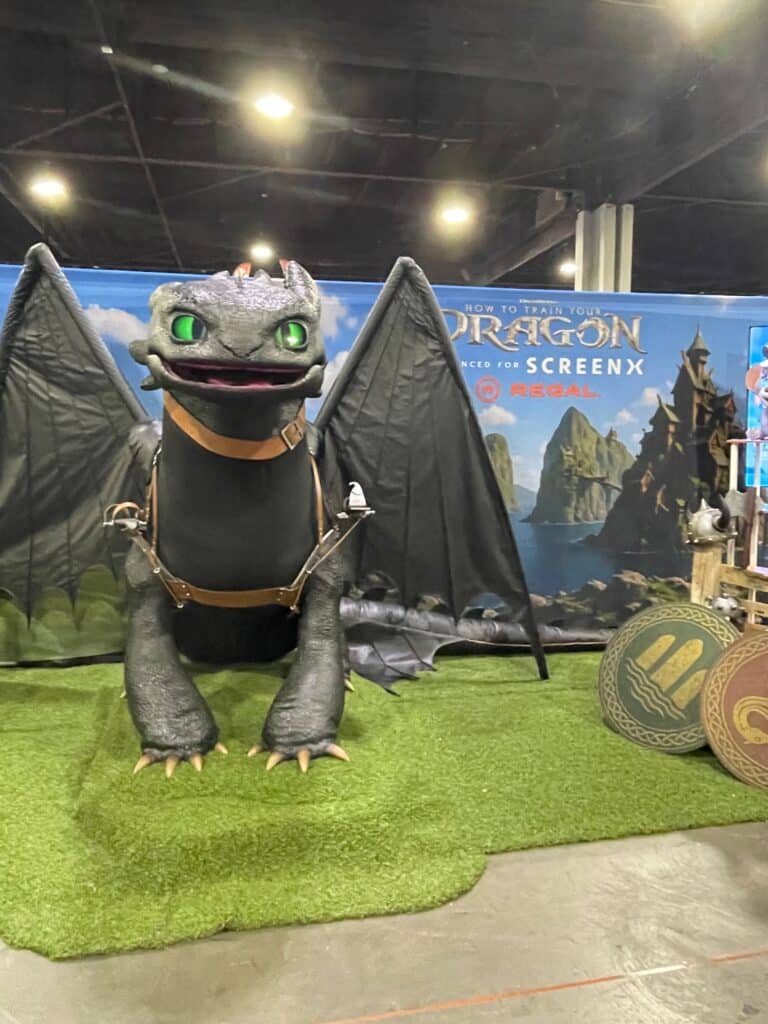


Workshops on everything from miniature painting and D&D to Gunpla modeling, as well as live performances and a massive vendors area and fan car showcase rounded out the exciting weekend.
Though tired from a whirlwind weekend of geek culture camaraderie and large (but super friendly) crowds, we can’t wait to see what MomoCon has in store for 2026.
For more about MomoCon, visit momocon.com.
Related
City Government
Peachtree Corners Hosts Discussion About the Future of Local Policing
Published
2 weeks agoon
May 12, 2025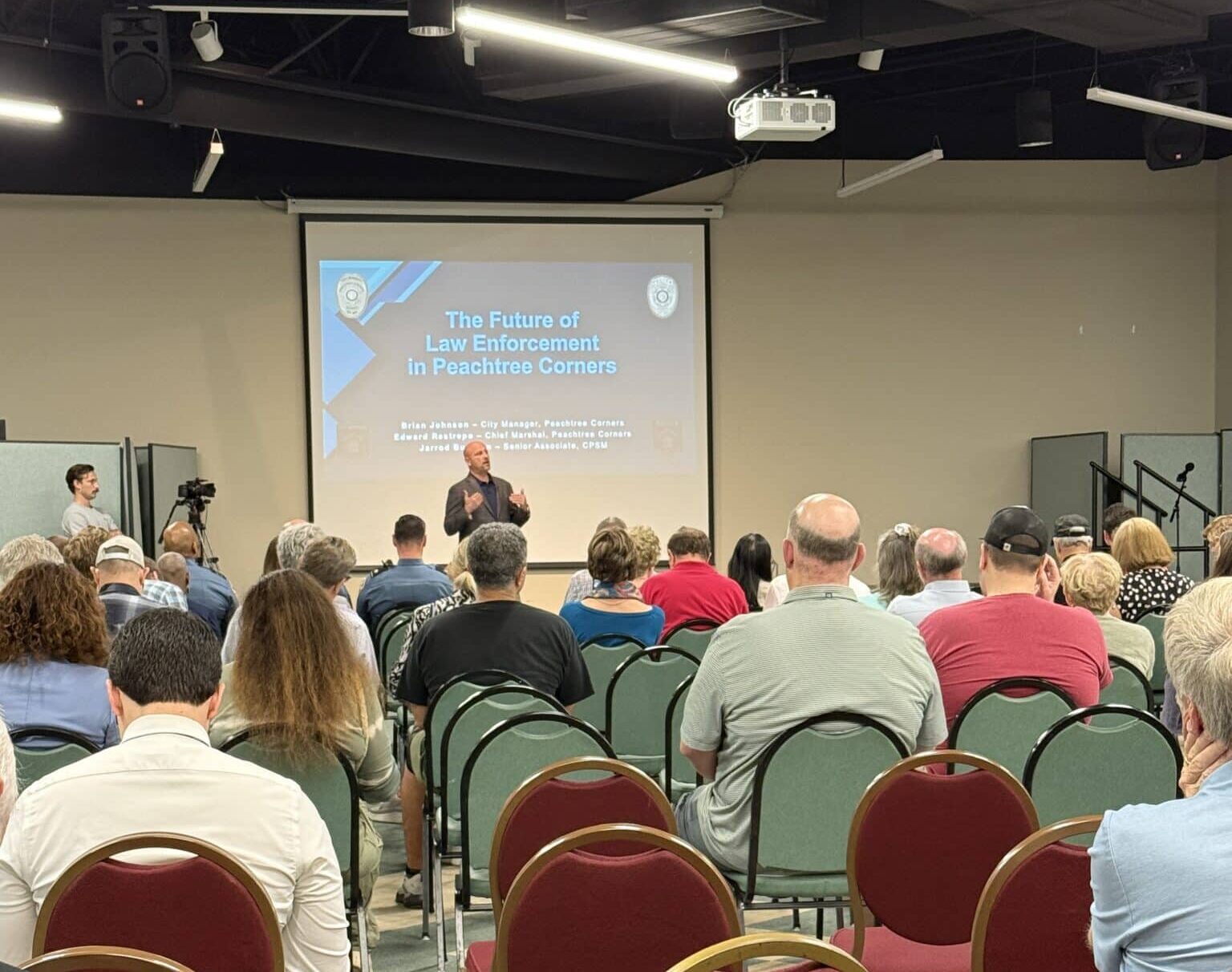
Although crime isn’t on the rise, and the Gwinnett County Police Department (GCPD) is fulfilling its role in fighting crime, the City of Peachtree Corners is asking residents, business owners and city stakeholders if they believe the city should form its own police department.
With over 100 people in attendance, City Manager Brian Johnson led the discussion about the future of policing in Peachtree Corners. He presented the findings from a survey conducted by the Center for Public Safety Management (CPSM), a nationally-recognized law enforcement consulting and training firm, as well as information about patrol officer staffing, response times, costs to tax payers and a potential timeline.
Ensuring public safety
Johnson kicked off his presentation by explaining that it is the duty of the mayor and city council to ensure public safety, including reviewing law enforcement.
“Maybe it needs to grow, maybe it needs to change its focus. But city council is the one that has the decision-making responsibility,” he said.
He was also adamant that this isn’t a done deal.

“I hit this point already, but I want to hit it again. This is the start of a conversation, a community conversation and feedback to council. There hasn’t been a decision,” he said. “Council has not received this presentation from me. They’re here to watch and learn from your feedback of this.”
Mayor Mike Mason was present at the meeting, along with all of the city council members except Eric Christ who was out of town and watching remotely.
Issues and obstacles
Johnson explained that the grounds for the inquiry were based on issues about communication, access to information and enforcement of city-specific ordinances. He cited an example where a city rule that private residences can’t be rented on a short-term basis like Vrbo or Airbnb wasn’t enforced by GCPD. An owner tried to circumvent the ordinance by only renting the outside of the house. A loud pool party ensued, and frustrated neighbors dialed 911.
“Officers showed up and they said, ‘We can’t enforce the city’s noise ordinance,’” Johnson said.
The first stage to fix this problem was creating the marshal program to bridge the gap between code enforcement and GCPD.
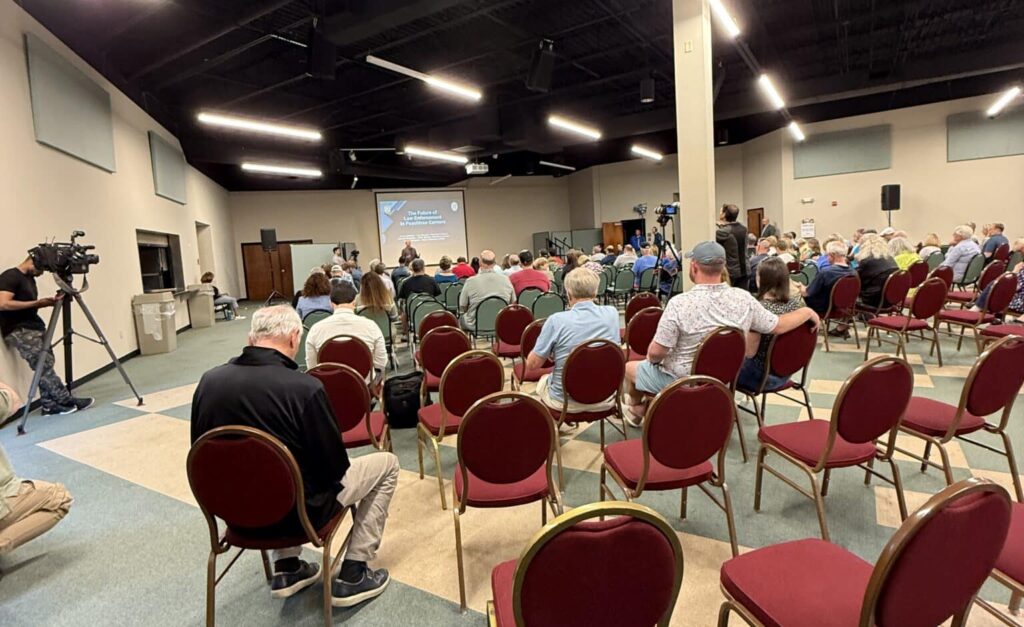
“[We thought] they would be able to enforce both local ordinance and state law, since they are a function of the city, and they could maybe be a force multiplier for Gwinnett since [marshals] don’t have to respond to 911 calls,” said Johnson.
But other issues arose shortly after the department was formed.
“We were still working towards getting that good balance, but we have been faced recently with a couple of things that make it harder for us,” said Johnson.
Seeking shared access
Instead of GCPD giving PTC marshals read-only, quick access to incident reports, dispatch calls and other information, the marshals department was required to file open records requests through the same process as any civilian.
“They were denied, as well as the city of Sugar Hill, [when] asked for the ability to see, not change, but see the computer-aided dispatch information, so that they would know where Gwinnett County police officers were; so that they could avoid stepping on their toes or maybe looking to support their efforts, and they haven’t been granted that,” said Johnson.
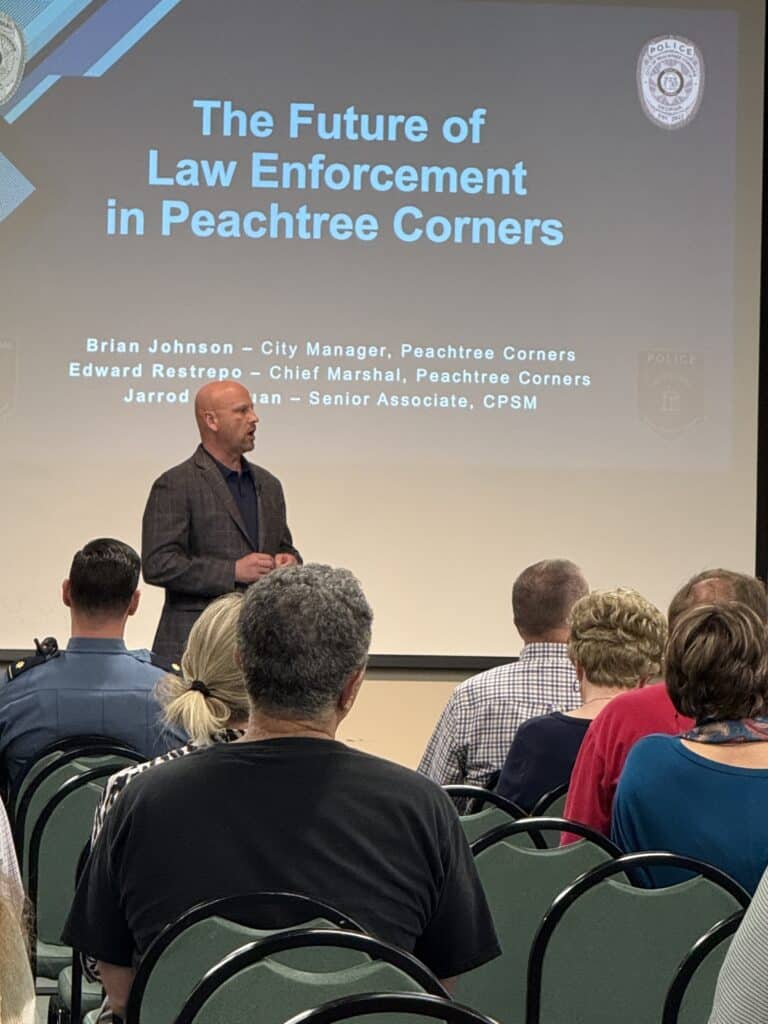
He added that the GCPD has video cameras on certain roadways that are used for various reasons, and law enforcement can use them when there’s crime in the area. Peachtree Corners marshals were denied access to those cameras.
“Conversely, we have a couple hundred cameras in the city, and we definitely want them to have access to them,” said Johnson. “So the frustration out of not being able to get that symbiosis between the marshals and police made us start thinking, all right, you know, is there another option?”
Community feedback
CPSM utilized data from GCPD to discern if Peachtree Corners could feasibly stand its own force. It also took into consideration crime trends, costs and many other factors. It recommended a 55-officer department, costing $12.1 million annually, with a $2.2 million upfront cost.
Comparing the two options to “renting vs. owning” the primary law enforcement agency in the city, Johnson presented pros and cons for each. Once the question-and-answer portion began, there was no obvious choice. Men and women, young and more advanced in age, had both similar and differing opinions.
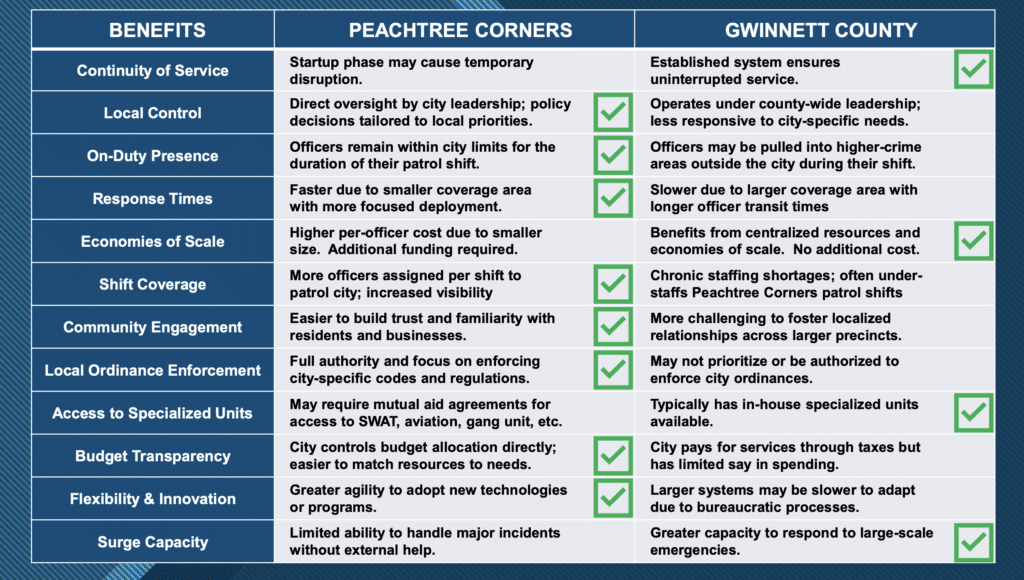
One young man, who identified himself as a local small business owner named Alexander, argued that with artificial intelligence increasing the efficiency of administrative tasks, perhaps the city wouldn’t need a full 68-man department of civilians and sworn officers.
Some accused the city of devising a solution in need of a problem. Others were concerned that paying approximately $100,00 for a study was throwing good money after bad.
But at the end of it all, the city is continuing to seek feedback and is encouraging everyone to make informed decisions. The meeting was taped and is available on the city website along with Johnson’s PowerPoint presentation, a copy of the study done by CPSM and a survey.
As far as a timeline goes, city officials would like folks to take the summer to mull it over and come back in the fall to take another look at the proposal.
Related
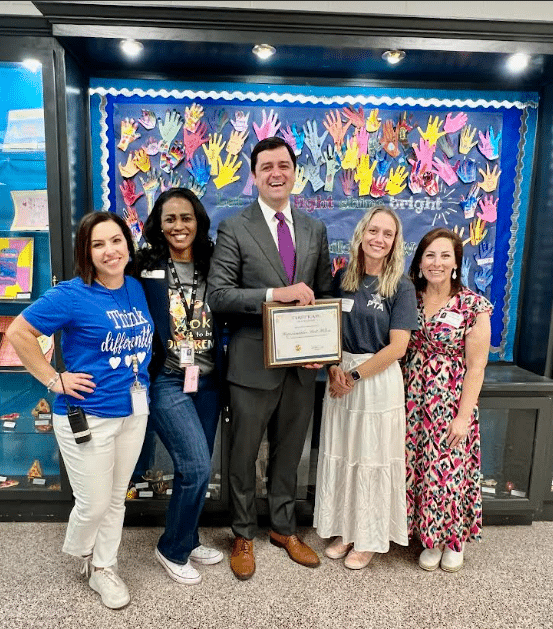
Simpson Elementary School celebrated Exceptional Children’s Week (ECW) last month with five days of special activities to recognize their special needs population and all of their exceptional students.
April 14–18 is set aside each year to celebrate children with disabilities, gifts and talents. This year’s ECW theme was Bridging Gaps and Building Futures, and the school was happy to take part.

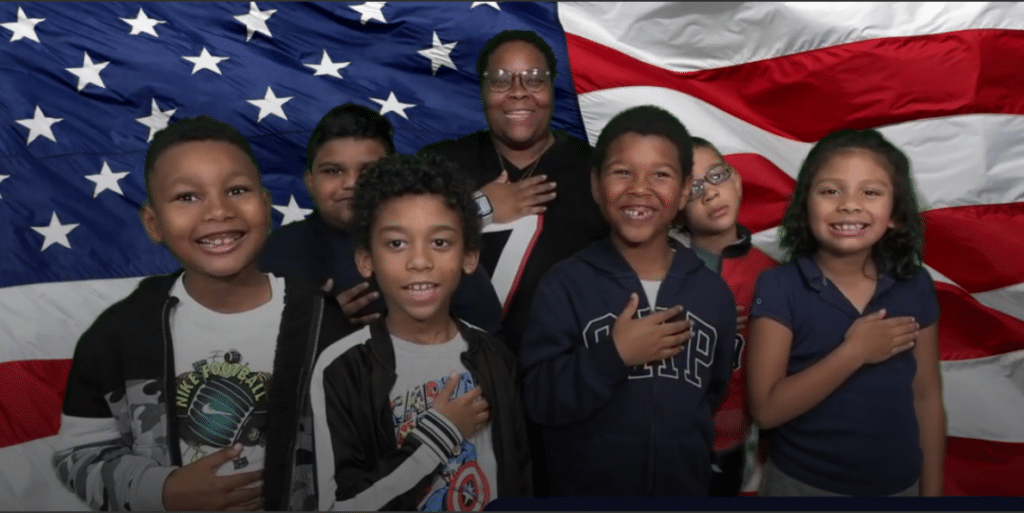
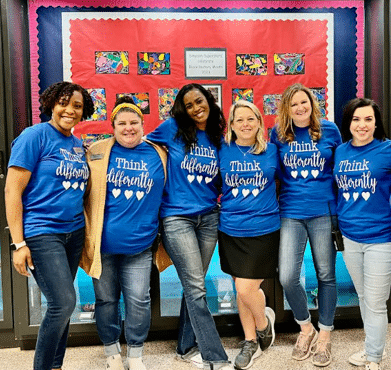
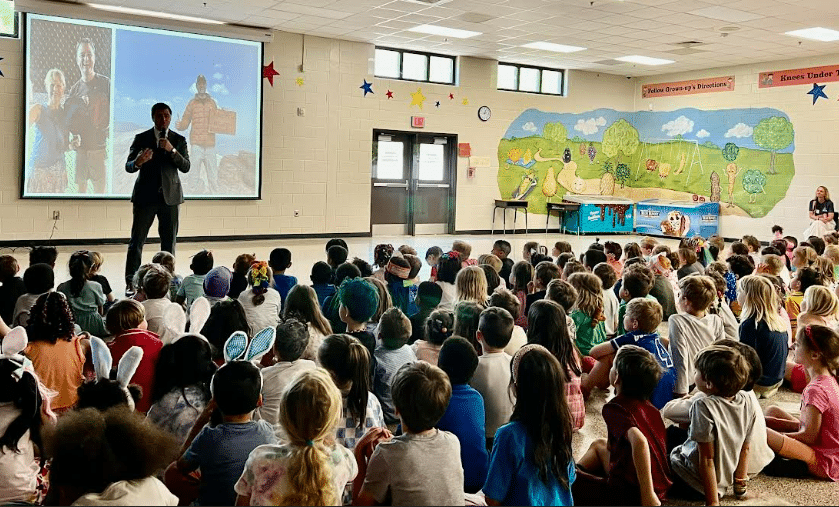
They highlighted each day of the week on the morning news with fun facts about notable people in society — and throughout history — who have overcome challenges with their disabilities, including actor Daniel Radcliffe (who has lived with dyspraxia for his entire life), Tom Cruise, Whoopi Goldberg, Frida Kahlo and Helen Keller.
Simpson Elementary’s technology team also pre-recorded various special needs classes reciting the Pledge of Allegiance every day of the week.
Guest speaker
To end their ECW with a bang, they invited former Simpson Elementary parent, State Representative Scott Hilton, to come in and speak to their K-2 classes about raising his son, Chase (who is autistic and now a student at Norcross High School), and how being different is okay.
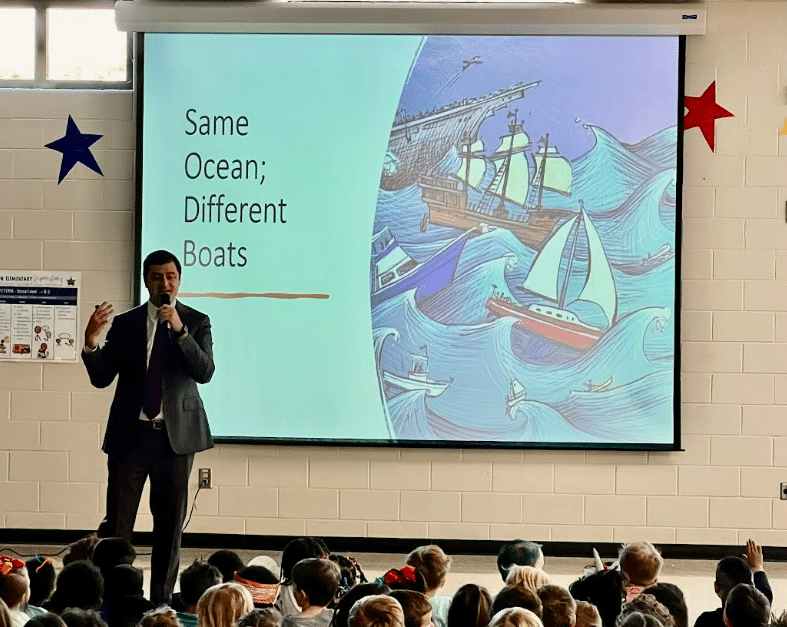
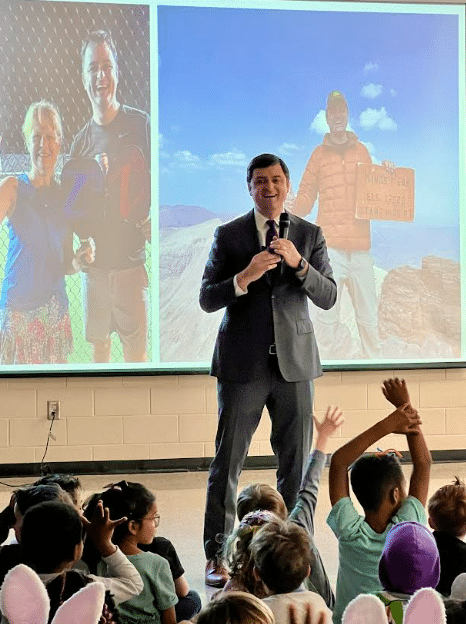
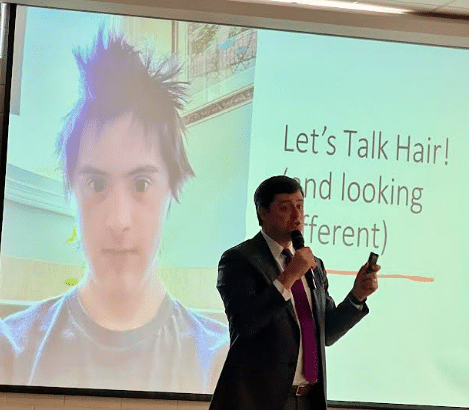
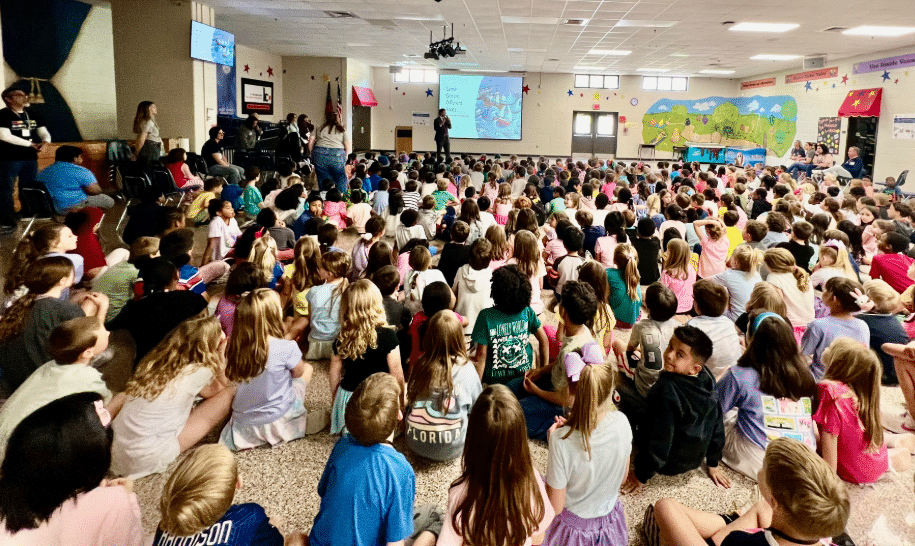
“Showing kindness and being inclusive is the best version of humanity,” said Dr. Taffeta Connery, Simpson Elementary School principal, in a statement about the event.
“Simpson Elementary has a special needs population of 214 (23%) of 946 students. [And] … we strive to ensure that our students are valued, recognized and instilled with high expectations for all.”
For more about Simpson Elementary, visit simpsones.gcpsk12.org.
Related
Read the Digital Edition
Subscribe
Keep Up With Peachtree Corners News
Join our mailing list to receive the latest news and updates from our team.
You have Successfully Subscribed!

MomoCon 2025 to bring 60,000 Fans to Atlanta for a Weekend of Cosplay, Animation, Gaming and Music

D1 Training Brings New Fitness Concept to Peachtree Corners

Atlanta’s Dog Howl-O-Ween Festival Moving to Peachtree Corners for 2025

From Boardrooms to the Himalayas: Vandana’s Journey to Purpose and Growing with Intention [Podcast]

Local Special Olympics Pickleball Team Honored with State House Resolution

Music Matters Productions Expands Peachtree Corners Headquarters

Brandon Branham Honored for Transformative Leadership in Peachtree Corners

Guardians of the Jukebox to Play the VoxStage on May 31

“Geek Culture” Shines at 2025 MomoCon

Celebration and Community: ICAGeorgia Wraps Up School Year with Two Festive Events

Guardians of the Jukebox to Play the VoxStage on May 31

Music Matters Productions Expands Peachtree Corners Headquarters

Brandon Branham Honored for Transformative Leadership in Peachtree Corners

From Boardrooms to the Himalayas: Vandana’s Journey to Purpose and Growing with Intention [Podcast]

MomoCon 2025 to bring 60,000 Fans to Atlanta for a Weekend of Cosplay, Animation, Gaming and Music

Local Special Olympics Pickleball Team Honored with State House Resolution

Light up the Corners [Video]

Capitalist Sage: Business Leadership in Your Community [Podcast]

Cliff Bramble: A Culinary Adventure through Italy

Top 10 Brunch Places in Gwinnett County

A Hunger for Hospitality

THE CORNERS EPISODE 3 – BLAXICAN PART 1

Top 10 Indoor Things To Do This Winter

The ED Hour: What it takes to Remove Barriers from Education









